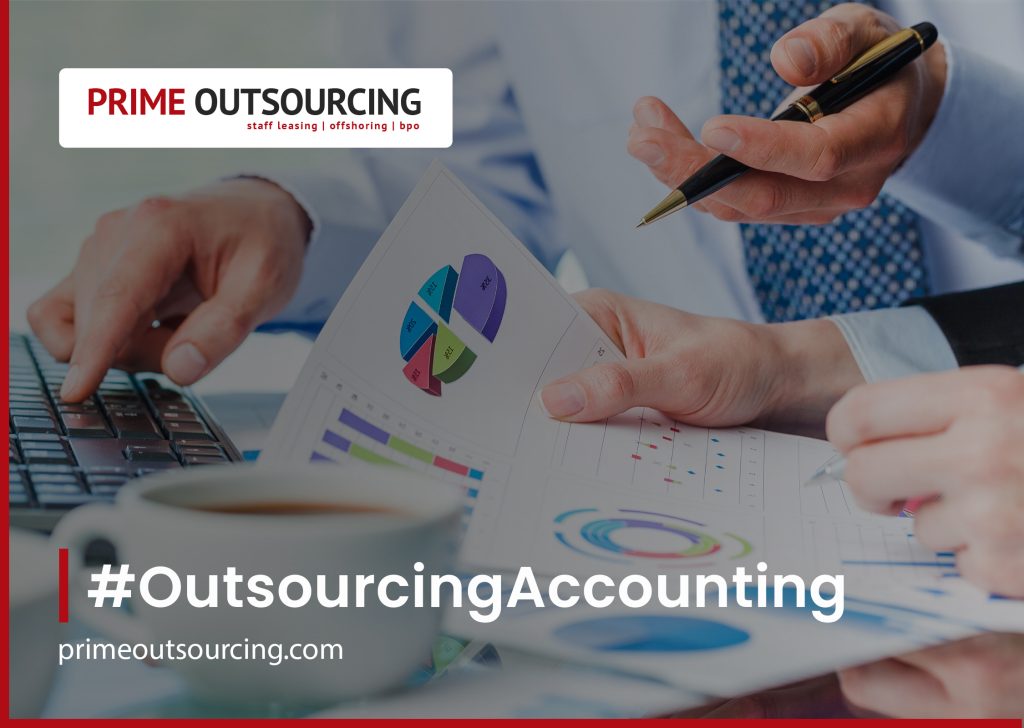
Running a business is about more than just making money. A company must have a department that manages its finances and tracks income and expenses. They need someone who ensures financial information is complete and accurate to make business decisions. The accounting department is essential for you to complete this vital work.
However, looking for a trustworthy and qualified accountant for your business is quite hard. It would take so much time and effort to guarantee that the accountant you hire is proficient enough to meet all these requirements. Fortunately, there’s an easy way to find people to work on your accounting tasks.
Before anything else, let’s get to know important accounting information first.
History of Accounting
The start of accounting can be traced back to ancient Mesopotamia. Early advances in writing, counting, and money were all closely tied to the early history of accounting. Mesopotamia played a significant role in the early development of accounting and cash, namely the move from tangible to abstract counting, a crucial stage in the evolution of counting.
The first person to produce a book on double-entry bookkeeping and popularize the discipline in Italy was the Italian Luca Pacioli, known as The Father of Accounting and Bookkeeping.
Accountancy as a profession started in the 19th century in Scotland. Accountants joined the same societies as lawyers, who frequently provided their clients with accounting services. Modern forensic accounting is akin to early modern accounting.
Local professional groups in England merged to become the Institute of Chartered Accountants in England and Wales in 1880, marking the beginning of the nineteenth century’s shift of accounting into an organized profession.
What is Accounting?
Accounting or accountancy involves the process of documenting a business’s financial transactions. Its work includes compilation, examination, and reporting transactions to supervise regulatory bodies and tax collection organizations.
Accounting ensures that financial statements summarize financial transactions, the company’s operations, financial condition, and cash flows over an accounting period.
It is the procedure of gathering and examining financial data for a business done by an individual, company, or accounting team.
Further, Tax collectors, regulators, and other oversight organizations want to see complete and accurate financial records for enterprises. These organizations will examine your accounting records if your company seeks investors or other shareholders.
If you’re planning to outsource your accounting, you must know how it functions first.
What is an Accountant?
An accountant is a person who keeps financial documents on behalf of a corporation, updates management on business performance, and generates financial statements.
It refers to a professional who carries out account analysis, auditing, or financial statement analysis.
They are free to establish their unique practices. These professions are certified by national professional associations after completing the educational and testing standards set forth by their respective states.
Job Responsibilities
Accountants’ responsibilities range from auditing financial reporting and conducting financial audits to reconciling bank statements and calculating taxes when filing annual returns.
An accountant has a lot of duties, so when you outsource your accounting, there are services that you can get from them. Here are the responsibilities of an accountant:
- An accountant carries out general cost accounting and other related accounting departmental tasks.
- It arranges and prepares monthly periodic profit and loss statements, income statements, and balance sheets.
- Responsible for maintaining the general ledger.
- An Accountant also codes invoices, makes new accounts, performs account reconciliation, and finishes the monthly books.
- It also settles bank accounts monthly, verifies deposits, and responds to bank inquiries.
- Accounts receivable collections and customer reconciliation
- Verifies the payment of invoices related to accounts payable and ensures they charge fees to the correct accounts.
- Assists outside auditors by gathering necessary account information and documents for an annual audit.
- It files necessary tax forms with federal, state, and local governments.
- Lastly, it coordinates with the software vendor to maintain the accounting software system as needed; and recommends updates to improve the accounting software.
Qualifications
An accountant plays a vital role in handling your company’s finances. Notably, you must check if your accountant is proficient and skilled enough to manage your business’ finances.
To help you, here’s a list of qualifications for identifying if your accountant is eligible.
- An accountant must have a Bachelor’s degree in Accounting or any related field.
- Aside from being a degree holder, she should have more education or experience.
- It is also a requirement that she has special licenses and certifications.
Other than education and experience requirements, it is also essential to consider if the accountant possesses the following abilities:
Numerical and Mathematical Abilities
Accountants must be very good at mathematics because they spend so much time creating and analyzing financial documents.
Numerical ability refers to the capacity to understand the essential ideas underlying simple mathematical operations like addition, subtraction, division, and multiplication. Meanwhile, Mathematical abilities refer to being able to grasp algebraic and calculus concepts and the capacity to use statistical information to address practical issues.
Bookkeeping
Accounting professionals must be familiar with standard procedures for presenting financial reports. They must be able to arrange bank deposits and keep track of ledgers.
Thus, they must have bookkeeping abilities like data entry skills, good communication, knowledge of bookkeeping principles, organizing records, attention to detail, and understanding the bigger picture.
Knowledgeable of software
Accountants need to use specific software programs to perform their jobs. It is a must for an accountant to be proficient in utilizing cloud-based accounting surfaces like Microsoft Excel, Xero bookkeeping, and Intuit Quickbooks.
Other accounting software they can use: ATX Total Tax Office, Sage 50 Accounting, and Oracle E-Business Suite Financials.
Good Communication
Managers require information on their organization’s financial situation. Accountants must communicate in a written and verbal manner to guarantee that organizational executives can grasp the complexity of financial reports.
Good communication happens when the accountant ensures that the message is received and understood with clarity and purpose.
Critical Thinking
Accountants dig through records regularly to assess a company’s financial health. They must be able to interpret the data they see and use it to suggest improvements.
It refers to an intellectually disciplined process of actively and skillfully conceptualizing, applying, analyzing, synthesizing, or evaluating information gathered from or generated by observation, experience, reflection, reasoning, or communication.
Detail Oriented
Accountants may work with a variety of accounts and records. They must comprehend the specifics of financial regulations and apply them to their business operations.
Being detail-oriented means having the ability to pay close attention and notice minute details. Someone detail-oriented may give a task their full attention and spot flaws, alterations, or blunders before they become issues.
Organizational Skills
Accountants need quick access to data on their company’s financials because they maintain records. Tasks and documents can get lost if they lack appropriate organizing skills.
Organizational skills are the abilities that allow you to focus on different tasks while also effectively and efficiently using your time, energy, strength, mental capacity, physical space, and so on.
Teamwork ability
Although accountants often work alone, they frequently collaborate on projects with other team members. They must collaborate with management groups and business executives as well. They must therefore get along with others.
To effectively work in teamwork, accountants must be good at communicating, be effective in time management, and solving problems. An accountant must know how to listen and collaborate with others.
8 Types of Accounting
Another essential thing to consider when you outsource accounting is identifying the accounting services you want to outsource.
1. Financial Accounting
This involves documenting, compiling, and reporting a company’s financial activities. The statements are the balance sheet, cash flow, and income statement.
2. Managerial Accounting
It includes identifying, measuring, analyzing, interpreting, and communicating financials to managers to achieve the company’s goals. Its intended purpose is to help the company make informed decisions.
3. Cost Accounting
It is a type of managerial accounting that aims to capture a company’s total production cost by measuring variable costs of each production phase and fixed costs such as a lease expense.
4. Auditing
It includes assessing and verifying financial, operational, and strategic goals to determine whether they follow stated principles and organizational and regulatory requirements.
5. Tax Accounting
It is concerned with the preparation of tax returns and payments. Individuals, businesses, corporations, and other entities use tax accounting.
6. Public Accounting
This type of accounting provides services to other businesses. Public accountants provide their clients with accounting expertise, auditing, and tax services.
7. Governmental Accounting
Its service maintains tight control over resources while categorizing activities into different funds to clarify how resources are allocated to various programs. This accounting method is used by all levels of government, including federal, state, county, municipal, and special-purpose entities.
8. Forensic Accounting
To find financial wrongdoing, forensic accounting combines accounting and investigative methods. It Informs the courts of the specifics of a financial crime is one of forensic accounting’s primary roles.
Why is accounting important?
Accounting is significant for big and small businesses and in any type of industry, it is entertainment, real estate, health care providers, etc.
You can’t run a business without it. Accounting allows business owners to evaluate the financial performance of the company.
Accounting provides critical information about a company’s costs and earnings, profit and loss, liabilities, and assets for decision-making, planning, and controlling processes.
Accounting’s primary goal is to record financial transactions in books of accounts to identify, measure, and communicate financial planning. Furthermore, tax reporting agencies require you to keep basic books that track income and expenditure.
Accounting services are the backbones of the business world. It gives your company financial security and makes operations more organized. It is one of the most crucial departments in the company. That is why it is important that when hiring an accountant and people in your accounting department, you should check if they are competent enough for the position.
Understandably, looking for accountants can be burdensome as there are other important business matters you should work on. Now, let’s learn why it is best for outsourced accounting services in the Philippines.
What does it mean to Outsource Accounting?
Instead of employing an accounting team, you engage a third party to handle your company’s affairs. If you choose to do it, you can benefit from services like payroll, accounts receivable, and financial reporting.
The outsourced company will complete the organization’s accounting and financial functions. This time, let’s find out why outsourcing accounting in the Philippines is your best choice.
Accounting in the Philippines
The practice of accounting in the Philippines started during the 1700s, but the Philippine government formally recognized accounting as a profession on March 17, 1923. Republic Act (RA) 3105 was implemented, and such formalization served as an initial step toward the country’s growing accounting profession.
The Board of Accountancy was established by this Act and given the authority to issue certificates to qualified applicants. Such a certificate serves as tangible proof of completing the rigorous process of becoming a CPA, which includes, among other things, passing the CPA board exam; it is a symbol of years of hard work and perseverance and, finally, the fruit of one’s labor.
Accounting is one of the most promising careers today in the Philippines. Filipinos have been enthusiastic about studying this course, which has produced 188,203 Certified Public Accountants (CPAs) in the Philippines as of 2018.
Passing the CPA Licensure Exam is difficult, so those who pass it and eventually become licensed accountants are surely skilled and competent. It is one of the reasons it is a good decision for you to outsource accounting services because before becoming an Accountant, they undergo rigorous studying and review.

7 reasons why you should outsource your accounting in the Philippines
If you run small businesses, then you know how difficult it can be to keep up with all the paperwork. Many benefits come with outsourcing these two areas, including focusing on more important things in your business instead of spending time dealing with accounting and financial issues.
Why outsource accounting to Filipino Accountants?
Upon knowing the status of Accountancy in the Philippines, let’s see the 7 best reasons you should start outsourcing accounting in the Philippines and outsource Filipino accountants.
1. CPAs With Professional Training and Specializations
The presence of major accounting firms in the Philippines has contributed to the development of a large talent pool of pre-trained and experienced Filipino accountants. Passing the CPALE is one thing, and having experiences is another.
A lot of Filipinos strive to have successful careers in finance. Every year more than 100,000 students from around the country enroll in the bachelor’s program in accounting. Additionally, there are already a hundred thousand licensed professionals in the Philippines who are CPAs, and this number is rising!
This expanding community of experts in accounting and finance can be helpful to both domestic and foreign big or small businesses in different industries like real estate, retail stores, government departments, and more.
Aside from that, Filipino accountants know no language barriers. They are also proficient in speaking English. They can communicate with foreign clients effectively. The country also has a 96.29% literacy rate. It is estimated that 70,679,148 Filipinos can read and write. They are fast learners with proper guidance and training.
2. Cost Effective for your company
Moreover, Filipino accountants’ labor costs are affordable. You can get high-quality work while being cost-efficient.
When you outsource accounting services to the Philippines, it can reduce other operating fees, such as those related to equipment, training, and government-mandated overhead. The company you hire to outsource accounting services will handle these costs.
It is apparent that when you outsource accounting services to Filipino accountants, it is not only the affordability you can benefit from but also the fact that the accountants are competent enough to handle what your company needs.
Benefits of Outsourcing Accounting in the Philippines
Aside from the above-mentioned advantages of outsourcing Filipino Accountants, here are the other benefits you can get when outsourcing accounting services in the Philippines.
1. Increased work efficiency and productivity
The efficiency and productivity of your company will increase if you have an offshore bookkeeper or accounting assistant available to manage your accounting needs whenever you need them and on time. You can accomplish more since you and your internal team can concentrate on your primary tasks.
As you work with other needs for your business, your outsourced Filipino accountants will work on the accounting tasks. Filipino labor productivity growth was highest in December 2017 at 8.87%, and it has been stable and higher over the years.
2. Reduced Risk
If you or your internal team members lack a broad knowledge of bookkeeping and accounting, you may occasionally overlook crucial details. You can assure that your bookkeeping and accounting activities are completed precisely and professionally by outsourcing them to experts in the Philippines.
Filipinos are known as hardworking and competent in the business industry and make sure they do their job accurately.
3. Adjustable schedule
You need a team accessible around the clock if your business has problems meeting time-sensitive accounting needs. Your outsourced accounting will help you in turning things more quickly. Graveyard shifts are also prevalent in the offshore outsourcing sector so that outsourcing organizations can work during the most convenient times for you.
Outsourcing companies in the Philippines are considerate of your schedule. They would adjust their work hours for you so they can assist you at your most preferred time.
4. Access to Proper Accounting Tools
Companies today must maintain the digital organization of their financial planning, just like any other essential work procedure. Even the most user-friendly software requires technical knowledge to go digital. Additionally, you must have an in-depth understanding of the instruments you employ while managing your business finances. With this concern, your outsourced company can help you with cloud-based accounting.
Accounting services outsourcing offers you more than just professionals with extensive expertise. They also offer software programs necessary to gather, compile, and evaluate the financial data of your business. Therefore, you don’t need to worry about finding the ideal equipment for your company. Your outsourcing partner will take care of these details instead. It will also ease your worries about you spending money on different applications.
5. Give you focus on your core business
Accounting is a difficult task, and experts must do it. When you start a firm, your objective is to figure out how to grow it, not to manage your company’s finances professionally. Your business’s growth would slow if you involve accounting in everyday tasks.
This problem can be solved if you outsource accountants to do the work so you can concentrate on long-term strategies. With an outsourced accounting team, you can devote more time and effort to discovering new business prospects and developing a growth strategy to guarantee long-term success.
Accounting can be tedious, and at times almost uneventful. It is best to outsource the work to a firm that works with your business goals in mind. Every business has its own goals and those accounting firm will help you meet those goals by providing support that is tailored specifically to your unique needs.
Prime Outsourcing Accounting Services
For all your accounting needs, PrimeOutsourcing is an option worth looking into. From cost analysis to fund allocation to payroll, the firm has you covered in every way. With such a comprehensive knowledge of the industry and a proven track record of success, it’s clear that this is your best bet for a trustworthy accounting team.
Your business deserves the very best accounting support. Let our experienced accounting professional help you achieve more than you ever thought possible. If you’re looking for an accounting team that can meet your needs and keep up with ever-changing regulations, look no further; outsource with us now!


